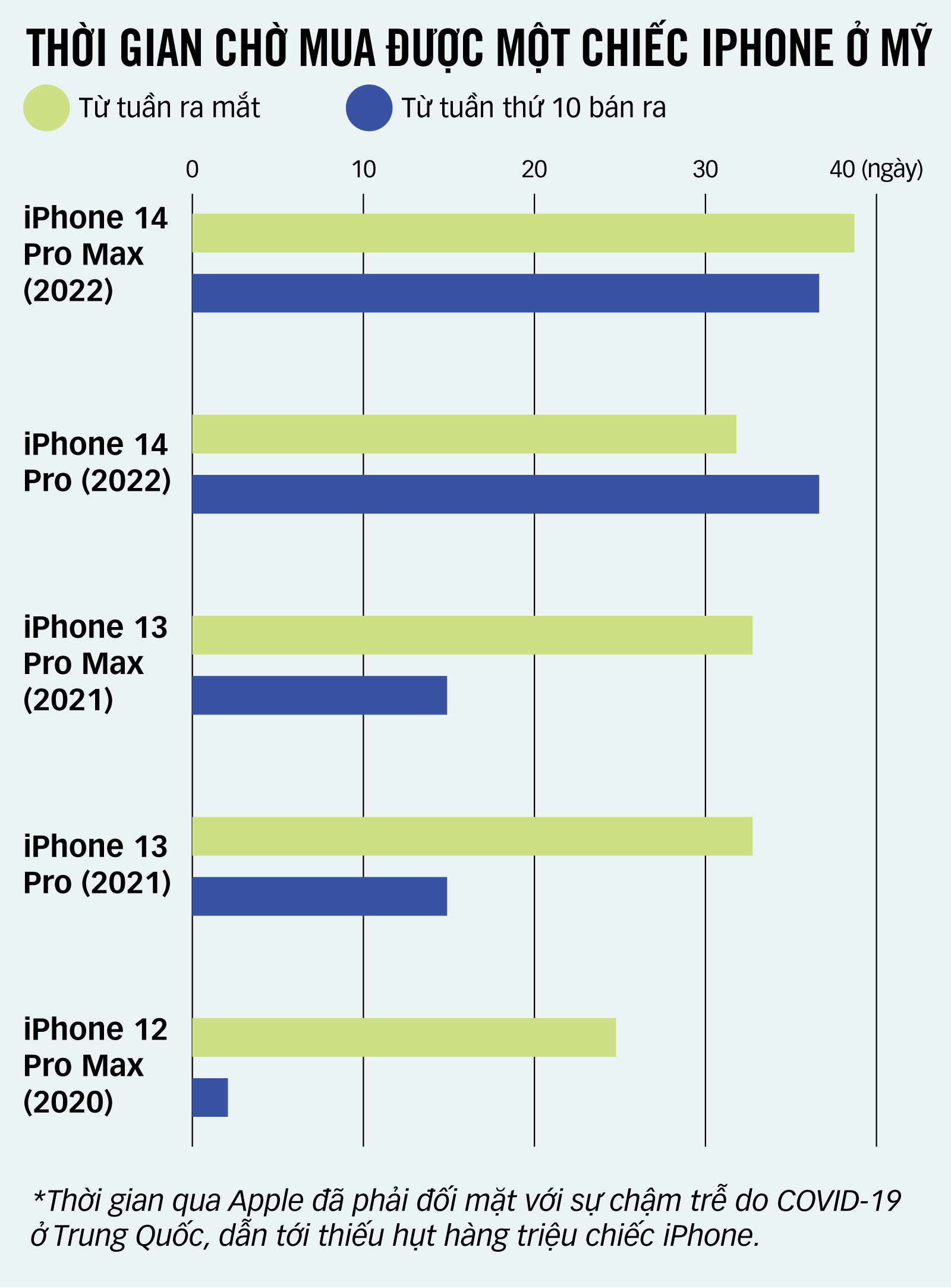COVID-19 spreads, Apple has difficulty in China
- Tram Ho

Source: Counterpoint Research, WSJ – Data: BINH AN – Graphics: TON DAT
On December 25, the Financial Times reported that Apple ‘s business was under threat due to the widespread COVID-19 outbreak in China. Supply chain experts warn that the risk of months-long iPhone production disruptions is increasing, in the context of Chinese experts predicting that the current outbreak will last longer.
Labor shortage
Zeng Guang, former head of the epidemiology team at the Chinese Center for Disease Control and Prevention (CDC), said it would take another two to three months for different regions of China to peak.
Last weekend, the government of Zhejiang province – which borders Shanghai – said the daily number of COVID-19 cases there had exceeded 1 million and was likely to double to a peak of 2 million. every day on Lunar New Year.
In the context of the epidemic spreading after China reversed its “zero COVID” policy, a more long-term risk looms: The possibility of a shortage of workers at component factories or assembly plants across the country. country. And Apple is among them.
Apple faced production delays as early as February 2020, before COVID-19 spread to Western countries and caused production problems since then. However, the current situation is described as unprecedented.
The US tech giant has faced more than a month of turmoil at assembler Foxconn’s factory in Zhengzhou (China), also known as “iPhone city”, following the COVID-19 outbreak- 19 started last October.
Foxconn has moved some of its production to other factories across China, and Apple has been working with component suppliers to reduce unusually long wait times – up to about 23 days for customers buy high-end iPhones in the US, according to research by UBS Bank (Switzerland).
Many operations will be affected, not only at factories, but also at warehouses and logistics facilities, said Bindiya Vakil, chief executive officer of supply chain risk management firm Resilinc. distribution and transportation.
Revenue declines
In November, Apple warned of “significant” disruption ahead of the holiday season. Analysts expect Apple’s revenue this quarter to fall from the record $123.9 billion the company hit in the fourth quarter of 2021, with net profit expected to fall more than 8%.
That would disrupt continued revenue growth for several quarters, as Apple faces a shortage of between 5 million and 15 million iPhones.
The risks to Apple’s revenue in 2023 have increased as forecasting models show that the COVID-19 epidemic could worsen in the coming winter months after China relaxes strict anti-epidemic regulations. strict. An Apple store in Beijing’s main shopping district had to cut hours last week because all of its employees fell ill.
One-fifth of Apple’s revenue comes from sales in China, and more than 90% of Apple’s iPhones are assembled in the country. Apple’s smartphone rival Samsung left China in 2019 and has diversified its assembly in at least four countries.
Horace Dediu, an independent analyst at consulting firm Asymco, said Apple’s production and operations difficulties in recent months could be followed by a demand crisis in China, as consumers used to adjust spending habits in the midst of difficulties.
Apple’s most important suppliers including Foxconn, Pegatron and Wistron – all three of which are Taiwanese – have responded by looking to expand their operations in India.
Prabhu Ram, head of industrial intelligence at CyberMedia Research in Gurgaon, India, estimates that as many as 7-8% of iPhones are assembled in India, and predicts that the three major suppliers mentioned above are targeting. Target to assemble 18% of iPhones in India by 2024.
Many technology companies are affected
Not only Apple, many other foreign technology companies with production bases in mainland China are also facing months-long disruptions due to the impact of COVID-19.
Sources said that electric car maker Tesla stopped production at the factory in Shanghai last weekend. The factory was slated to close for Tet, but the decision was made earlier than expected. According to SiliconANGLE, other companies with manufacturing facilities in mainland China that are likely to be affected include Samsung, Microsoft, Google LLC, Dell and HP.
Source : Genk
